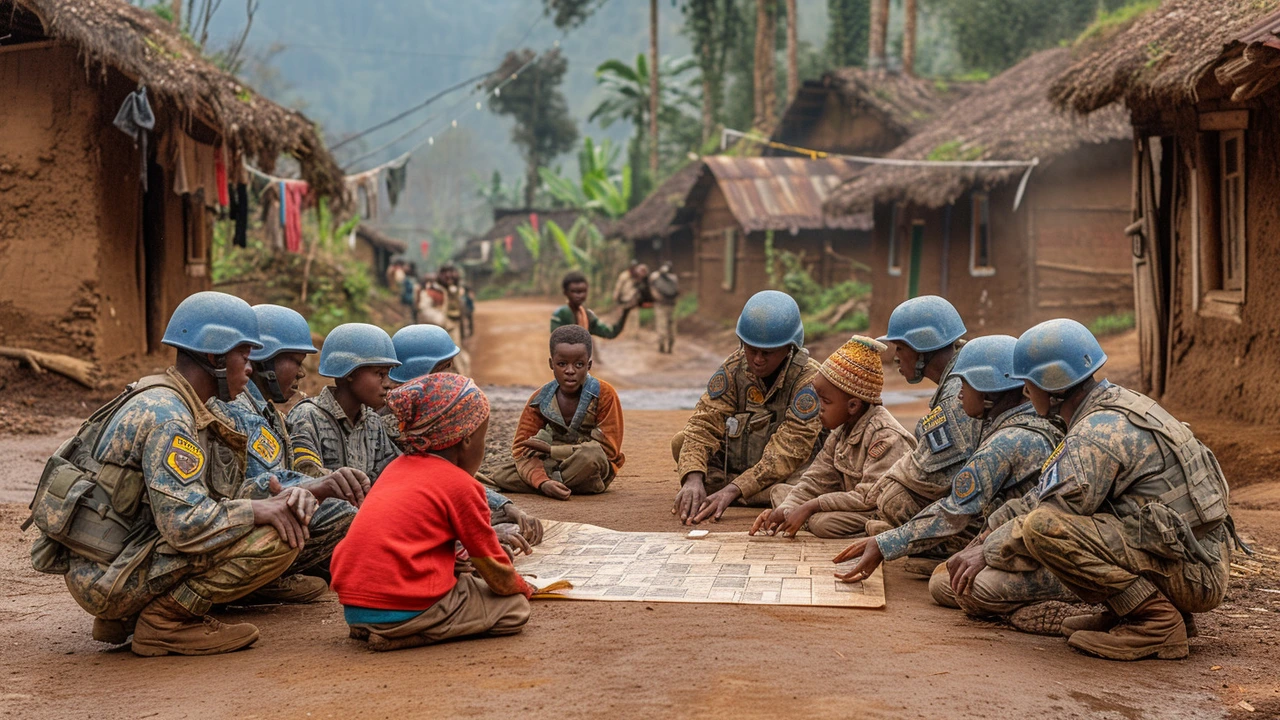What if peace wasn’t just the absence of fighting, but people having real power to shape their lives? Sociopolitical empowerment means communities gain the voice, resources, and institutions to decide their future. Peacekeepers can help make that happen, but only if missions move beyond security tasks and work with locals on political and social power.
When people feel excluded from decisions, frustration grows and conflict can return. Empowered communities take part in local councils, demand fair policing, run businesses, and hold leaders accountable. That reduces spoilers and builds trust. Peacekeeping that ignores these dynamics can protect a fragile calm while the roots of conflict stay untouched.
Think of a town where women lead neighborhood committees, youth run repair crews, and local courts resolve land disputes fairly. Those are signs of empowerment. They lower the chance that tension becomes violence again.
Start with listening. Patrols and civilian staff should meet local groups, not just officials. Ask who is left out: women, youth, displaced people, ethnic or religious minorities. Design programs that target their needs and build their skills.
Support local governance. Train council members in budgeting, planning, and transparent decision-making. Small grants for community projects—repairing a clinic, fixing a market road, or funding a youth center—show immediate benefits and create local ownership.
Protect civic space. Peacekeepers can use presence and advocacy to keep protests peaceful, secure elections, and protect journalists and human rights defenders. That helps people speak up without fear.
Invest in local justice. Strengthen community-based dispute resolution and link it to courts. When people trust dispute systems, they avoid taking grievances to armed groups. Training police in human rights and community policing also rebuilds confidence in institutions.
Include women and youth deliberately. Evidence from many missions shows that when women and young people lead decision-making, outcomes improve. Create quotas in local committees, support women’s economic initiatives, and fund youth entrepreneurship.
Measure power shifts, not just outputs. Track how many local bodies are functioning, how often citizens attend meetings, who benefits from projects, and whether people report less fear. Numbers that show people’s influence are as important as the number of patrols or checkpoints.
Sociopolitical empowerment isn’t quick. It needs patience, local leadership, and sustained support from peacekeeping missions, NGOs, and donors. But when communities gain real power, peace becomes harder to break. That’s a goal worth aiming for—and a practical way to make peacekeeping matter beyond the headlines.

As a passionate believer in gender inclusion, I'm thrilled to delve into the crucial role of women in peacekeeping. Women's presence on the peacefront has been transformative, fostering empathy, reducing violence, and driving solutions rooted in community needs. But we've only scratched the surface. Let's further explore how empowering women in peacekeeping efforts leads to sustainable peace and reconciliation. Join me as we spotlight this remarkably understated aspect of gender equality.
